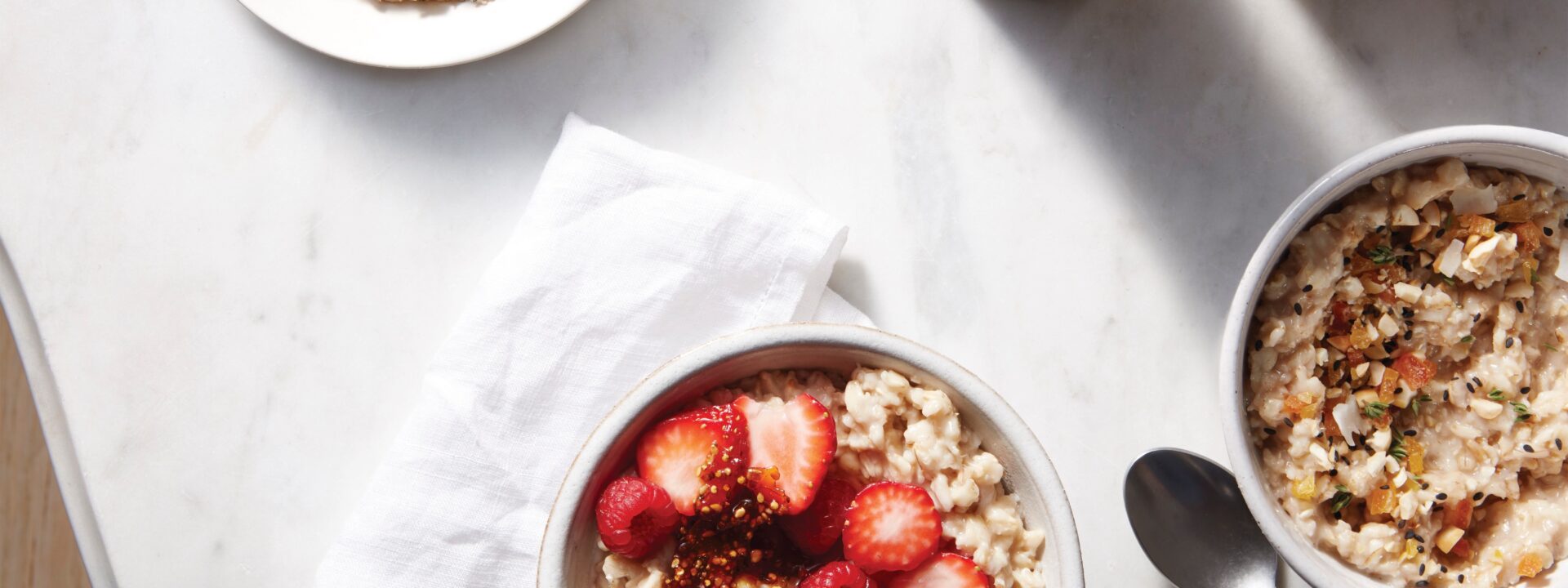Oatmeal might not be the most exciting breakfast option, but it’s undeniably one of the healthiest. There’s a reason oats have been a dietary staple for thousands of years.
“I eat oatmeal every day,” says Dr. Christian Merkel, a dermatologist and nutritionist at the Skin and Laser Center in Munich, Germany. “To me, it’s a true superfood—and seriously underrated.” He points out that oatmeal isn’t just great for digestion—a cornerstone of overall health—but also keeps you feeling full for longer. Here are six reasons why oatmeal deserves a regular spot in your morning routine.
### 6 Health Benefits of Oatmeal
1. Packed with Fiber
“Oatmeal is loaded with fiber, making it excellent for digestion,” says Merkel. Its primary fiber, beta-glucan, is soluble and has been shown to lower blood sugar and insulin levels, help manage type 2 diabetes, and boost beneficial gut bacteria. Impressive, right?
2. Rich in Vitamins
Oatmeal provides vitamin K, crucial for bone health and blood clotting, along with B vitamins—especially B1 (thiamine) and B5 (pantothenic acid). These help convert food into energy, support digestion, produce red blood cells and hormones, and promote healthy skin and eyes.
3. Heart-Healthy
“Research confirms that oatmeal lowers cholesterol, making it beneficial for heart health,” says Merkel. This is largely thanks to beta-glucan, the same soluble fiber that aids digestion.
4. Full of Minerals
Oatmeal contains essential minerals like copper, zinc, calcium, and potassium. It’s also high in magnesium (vital for energy, sleep, muscles, and more) and manganese, a trace mineral that helps reduce inflammation.
5. A Solid Plant-Based Protein
Oats are a great protein source for plant-based diets. “Compared to other grains, oatmeal’s nutritional profile stands out,” says Merkel. “With 5.3 grams of protein per half-cup, it helps balance out the carbs.”
6. Stabilizes Blood Sugar
While some experts debate this, Merkel considers oatmeal a smart choice for blood sugar control. “Oatmeal has almost no sugar, so it won’t spike insulin levels,” he explains. “Instead, it causes a slow, steady rise in blood sugar, keeping you full longer.” Beta-glucan also slows stomach emptying, which can help lower blood sugar—especially in people with obesity or type 2 diabetes.
### The Healthiest Way to Eat Oatmeal
Skip instant oats—opt for steel-cut whole oats instead, as they retain more fiber and nutrients. Organic is best if possible. “Keep in mind that cooking breaks down many vitamins and minerals,” says Merkel, who recommends eating oats raw for maximum benefits. If that’s too much, try these alternatives:
Overnight Oats with Almond Milk, Turmeric, Cinnamon, and Blueberries
Mix oats with your favorite plant-based milk (Merkel prefers unsweetened almond milk for its nutrition and taste). Add antioxidant-rich spices like turmeric and cinnamon—just a teaspoon of turmeric boosts the health benefits. Cover and refrigerate overnight (8–12 hours). In the morning, top with blueberries for an extra superfood boost.”Berries, especially dark ones, are packed with antioxidants,” says Merkel. “Preparing your oatmeal this way creates a super healthy breakfast—high in fiber and antioxidants. Unlike packaged muesli, it gently raises insulin levels and keeps you full longer.”
Protein Shake with Oatmeal and Fresh Fruit
Merkel recommends adding oats to your protein shake or smoothie for extra protein, nutrients, and fiber. “Blend one to two tablespoons of uncooked rolled oats with fresh fruit. The oats add a nutty flavor, and blending preserves the vitamins,” he explains.
